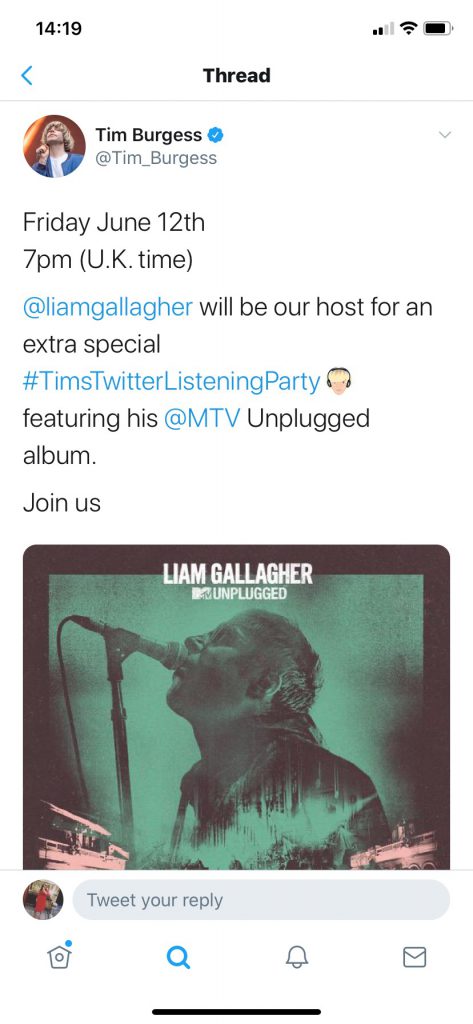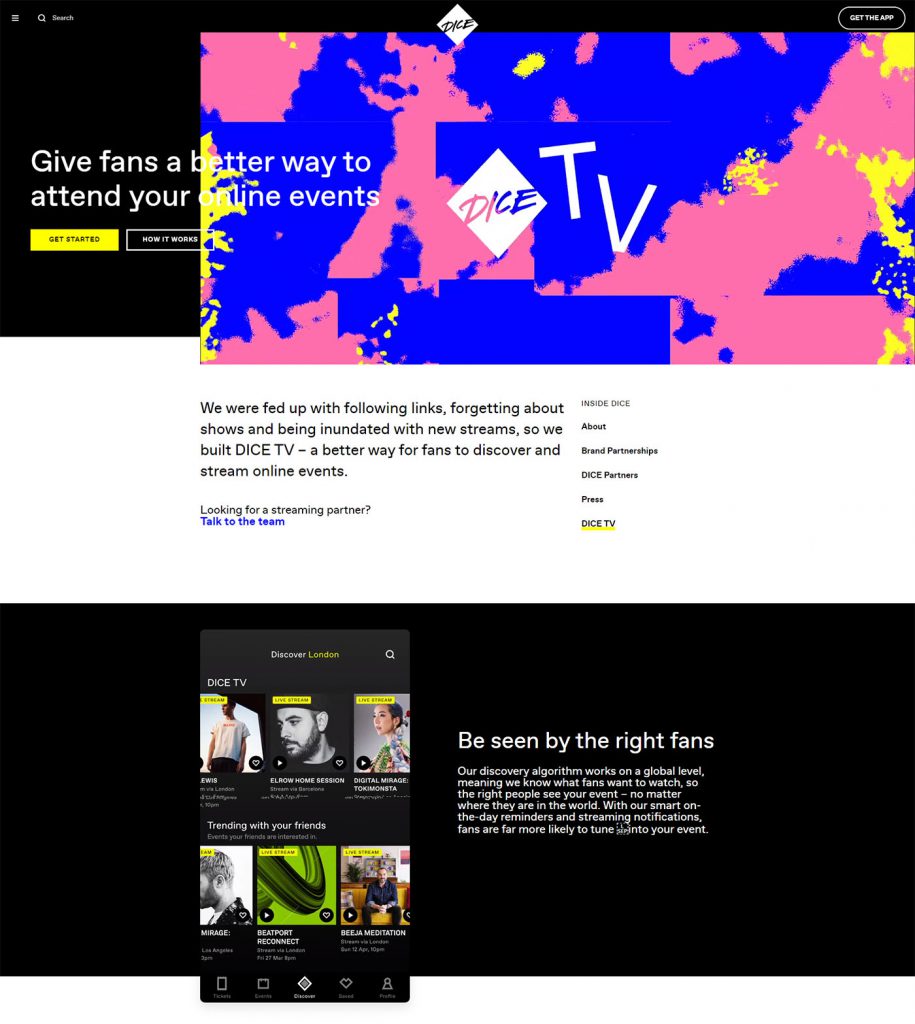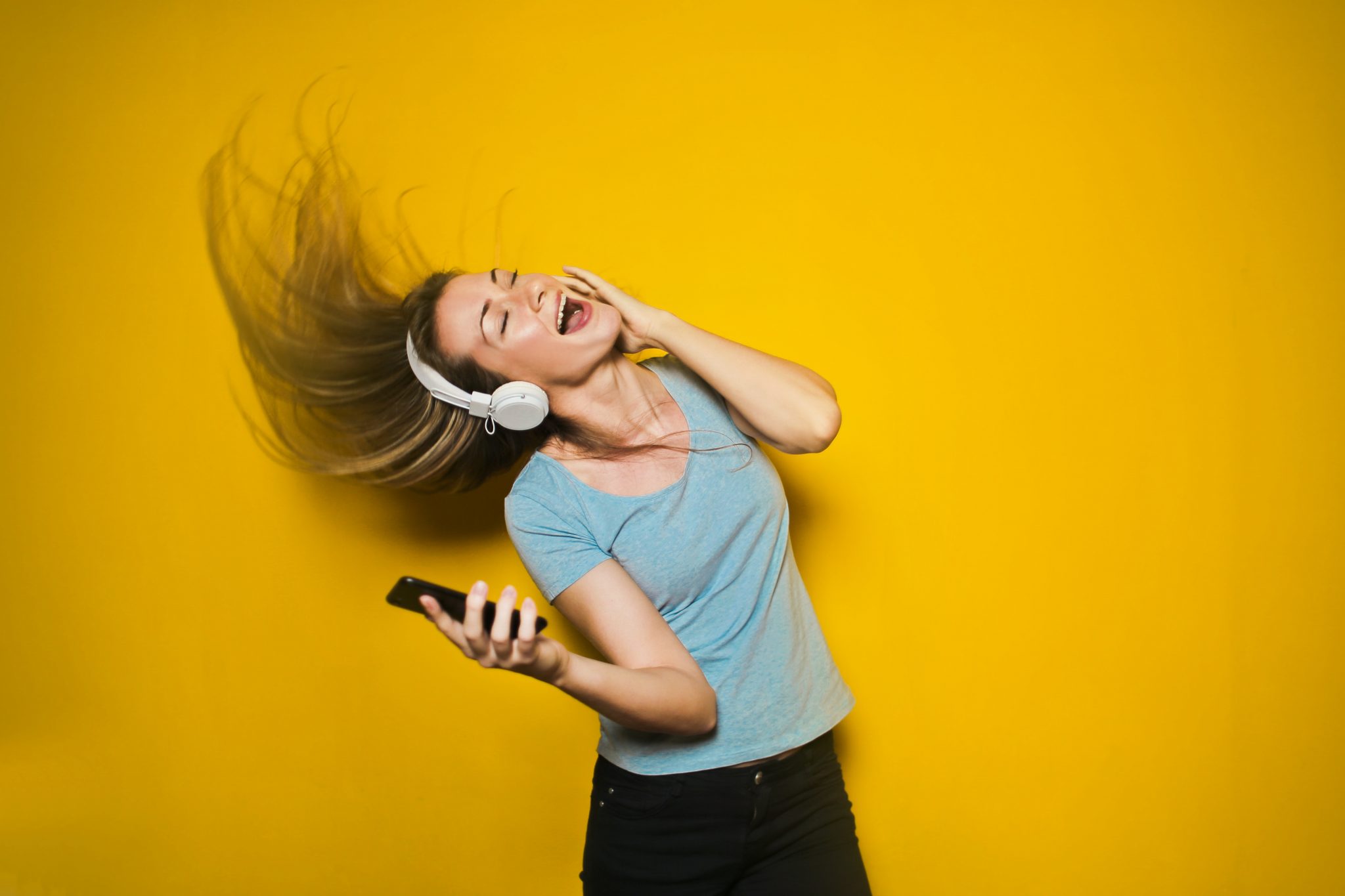Music has always been an important part of my life, from a very young age. One of my earliest memories is of my Dad trying to teach me how to play drums on a variety of saucepans – much to my Mum’s despair! A good song can instantly transport you back to a specific event or remind you of a person in your life as if you are travelling through time.
To me, music can cover every single emotion – it provides comfort, community, and a sense of belonging. Over the years, music has introduced me to extremely interesting people and fantastic friends.
In recent times, as we all continue to navigate through the pandemic, I have found myself delving deeper into music and appreciating how it encourages connectivity, motivation, and entertainment.
At times of great challenge, music helps to uplift us.
Throughout the pandemic, people have been finding new and inspiring ways to remain connected to each other, albeit whilst physically separated.
We have seen videos of balcony concerts from people in Italy, Spain and the wider world – in which people in quarantine have performed for their communities – coming together in unity to make music and share joy during such uncertain times. We have seen this before. People sang as flames tore through the roof of the historic Notre Dame Cathedral – hymns in the street when Parisians could do nothing else to save the much-loved icon.
The UK’s ‘Clap for the NHS’ is a further example – this weekly act of appreciation for key workers saw a vast turnout of people across the country clapping and cheering from their doorsteps, their balconies, or in their gardens – the best part being you didn’t need to be musical in the slightest. The sound of banging on pots and pans (thanks for the tutorial, Dad) definitely provided a bit of extra oomph, echoing through local communities in a declaration of enormous thanks.
Radio heads
Radio was almost made for a crisis because it is live, personal, compassionate, informative and in a crisis the medium’s clear public purpose is enhanced. Over the past few months, figures have shown that people are flocking to the radio. The sound of your favourite broadcaster can make you feel reassured and connected to the rest of the world, especially whilst many of us continue to remain indoors.
Radio has a sense of an inclusive, all-in-this-together nature. The BBC’s Great British Singalong is a great example of this – taking place every Thursday on BBC Radio 1, Radio 2, 6 Music, 1 Xtra and the Asian Network shining a light on the thousands coming together across the UK in a singalong dedicated to different groups deserving of thanks and celebration.

Covid-19 has shed light on many regional and local radio positives that we may have previously mocked and taken for granted. Our local radio DJs may have previously been ridiculed as narrow-minded, “Alan Partridge” types, but are now uniting their communities and proving their value with honest stories of how they are coping.
As for personal listening, I am here to admit, I am a BBC Radio 6 Music addict – with playlists featuring songs from Bowie to Bananarama, it is the perfect platform for my eclectic taste!
Collaborating at a distance
Remember gigs? Remember the joy of standing squashed in amongst strangers as bands played the songs you love whilst the lights and the noise seemed electrifying? Maybe just me….
The Covid-19 pandemic has caused havoc amongst the music industry. Although figures from streaming sites such as Spotify and YouTube have increased, musicians are still struggling as live music has come to a complete standstill.
Summer in the UK, for me, means festivals – these events are now impossible under the current social distancing guidelines. A BBQ with a few mates sat two metres apart might just be as crazy and wild as it gets!
In a press release issued by Glastonbury festival it stated that cancelling the 2020 50th anniversary special was “the only viable option”.
Which moment screams @Glastonbury to you?
Did we include it in this magical montage?🛋 Join us for The Glastonbury Experience from Thursday 25th-29th June 2020 📺 📻 https://t.co/C01QYi0OXf pic.twitter.com/dstMXbDylJ
— BBC Radio 6 Music (@BBC6Music) June 17, 2020
However, with the country stuck at home musicians have taken it upon themselves to come up with new innovative ways to bring people together.
Virtual gigs and impromptu online performances are becoming regular occurrences, as most live gigs and major concerts have been cancelled or rescheduled. It’s a trend that will no doubt continue for the foreseeable future.
There is a plethora of online music events to get involved in – be it singing along to the Rolling Stones during the ‘One World: Together at Home’ event; dancing along with Sophie Ellis-Bextor and her family during one of her Instagram live sessions; taking piano lessons via YouTube from Jools Holland; or even cheering on your favourite North West Mayor, as Andy Burnham and Steve Rotherham went head to head in a charity DJ battle on The United We Stream website. There really is something for everyone.

For me, Tim Burgess from Manchester band The Charlatans has been a real lockdown winner. Tim hosts a #TimsTwitterListeningParty every night at 9pm, with the likes of Oasis, IDLES, Flaming Lips and The Jam all taking part in recent weeks. The idea is that an album is chosen, and everyone listens together at a set time – 9pm or 10pm – with commentary from one of the artists involved. You also get rare and previously unheard insights into the making of the albums, tour diaries, lyrics sheets and personal photographs. As a huge Oasis fan, getting to hear all about the backstage antics from the recording of (What’s The Story) Morning Glory? was an absolute dream! God bless you, Tim!
The future of the music industry – Post Covid-19
No one knows what the future may look like – however, live music is most likely going to be one of the last things to be approved when the lockdown does eventually lift. When that happens, I predict we will see an explosion of new releases from artists that have delayed releasing new music due to the pandemic, or those that have made new music since being locked away in their home studios. There is a definite sense of energy bubbling through creatives during this time.
Some of us will be desperate to get back to a gig; others will be extremely cautious of sharing a hot sweaty room with strangers. It will be a slow recovery with many low risk events being prioritised. We may see artists going back to ‘normal’ with more of a stripped back performance and do away with an all singing, all dancing, full-lights theatrical show – instead, seeing just a guy and a guitar playing to make money again.
Post Covid-19 appears to be a challenge. Rebuilding consumer confidence in the creative sector will be difficult. Many festival directors are thinking of how they can continue to operate and at full capacity. Melvin Brann, managing director of Festival Republic, wants to link his events (Leeds and Reading and Wireless Festival) to compulsory coronavirus testing – a negative Covid-19 test would be your golden ticket to getting you into a gig or festival. This is of course something that would need Government backing and as of yet, there has been no formal talks and no indication of a willingness to drive forward the idea.

An encouraging trend appearing is via the platform known as DICE. They have introduced professional live concerts taking place online. This feels like a natural progression from the free streams which have a tendency to feel a little more informal and considerably less high tech. An increasing number of famous artists are planning to schedule online live shows which feel much more like a traditional music festival or concert performance. Is this the future of live music?
I feel hugely positive that people are talking about getting the industry back on its feet whilst at the same time, it feels as if the industry had to stop, take a breath and go back to basics. This has helped a vast number of musicians and fans truly appreciate the love that they originally felt when they first held a musical instrument or heard a new song by their favourite band. It now feels raw, much more connected, and most importantly, real. As ABBA once said; “Thank you for the Music”
So, I encourage you all to make that Spotify playlist, check out a live gig on Twitter or make that saucepan drum kit! You may find the beat you never knew you were missing.


